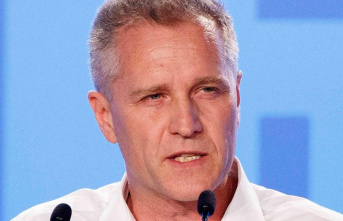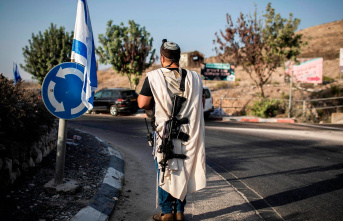To perhaps answer the question of where the positives are after this almost 30-hour marathon that the red-green-yellow crisis negotiators have completed on their own behalf: the true positives remain clearly hidden.
And no, that is by no means a contradiction, on the contrary, it is even a great praise - a praise of secrecy. Anyone who remembers the piercings that used to happen from committees that actually met confidentially - from the CDU presidium to the chancellor's meetings with the prime ministers during the Corona peak phase - can only be amazed at the secrecy with which this coalition committee , with 17 participants the largest ever, from late Sunday afternoon until this Tuesday evening wrestled with itself and a good two dozen unanswered questions, only interrupted by a kind of upscale company outing by the Chancellor and some other participants to the German-Dutch government consultations in Rotterdam .
During the trip, which was accompanied by 20 journalists, there would have been plenty of opportunities to divulge how things went in the banquet hall on the fifth floor of the Chancellery during the long night of the Beckmesser quarrel, especially between the FDP and the Greens about traffic and climate protection, who and who how and whose side the chancellor sided with. But: no dying word. There weren't even any water level reports on what had already been agreed and what was still in dispute. Even for those who stayed at home: silence in the forest.
It stayed that way until the end, until the results were announced.
In principle, this also answers the all-important question of whether this coalition, which after less than a year and a half already seemed hopelessly divided, still has a future. Yes, she has. Hooray, we're still alive. Provisionally. Government alliances usually do not fail because of questions of substance. They fail because the leading characters can no longer get along with each other. This is obviously not the case in traffic lights. The mood internally is still better than the situation.
"Very, very, very good" would be the decisions, Olaf Scholz had promised full-bodied shortly before the end of the negotiations. A triple boom, so to speak. What the coalition committee wrote on 16 pages is about as far away from that as Germany is from the "government crisis" in which CDU leader Friedrich Merz already sees the republic. It's more like the way Finance Minister Christian Lindner sums it up: Each partner can represent each individual point, and everyone has received something "that makes them particularly happy". The SPD gets more social justice, the Greens a lot of money for the railways, and the FDP has enforced that motorways can also be expanded faster. Among other things.
And so to the man who is responsible for the fact that the coalition has gotten into the state it was in until this afternoon - and may soon be in it again: Olaf Scholz. Baden-Württemberg's Prime Minister Winfried Kretschmann is right when he complains that traffic lights could be better and that it is "a sign of the chancellor's weakness in leadership" if they don't.
Olaf "It will have been worth it" Scholz likes to defend himself with the argument that the Germans are not yet used to the fact that three partners rule on an equal footing, each with their own or idiosyncratic political ideas, which always come together to bring. That is a new challenge. Pretty much everything is wrong with this argument except the part about the divergent ideas.
There were also three partners in the grand coalition. At the time, the SPD itself repeatedly pointed out that it basically governs with two very different parties, the CDU and CSU. And as far as equality is concerned: the last Merkel government consisted of an apparently strong partner, a half-strong and a riot. This division also exists in the traffic light - with the only subtle difference that in GroKo times the riot role was clearly occupied, while now the FDP and Greens are constantly bickering about it.
It would be up to the chancellor to settle this quarrel permanently – if only out of self-interest.
"The fish always stinks from the head." The sentence is not particularly original. But sometimes he does. Sigmar Gabriel once said it about Gerhard Schröder, when at some point it was no longer really clear whether the SPD and the Greens - and the comrades among themselves - were still governing together or already against each other. Olaf Scholz is slowly having to be careful that this sentence is not applied to him.











